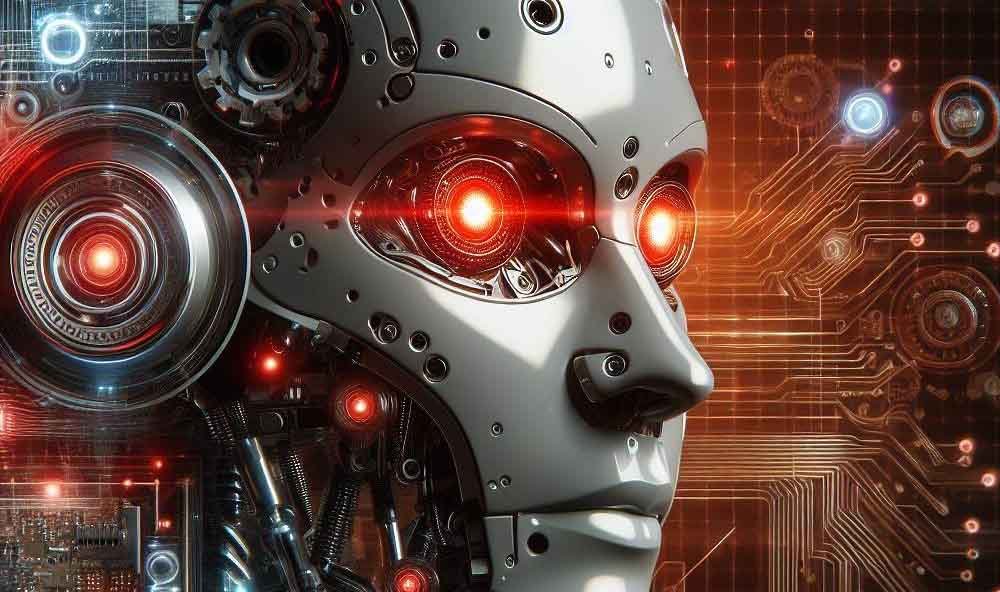The 2024 Paris Olympic Games witnessed a revolution in artificial intelligence. Dr. R. Erdem Erkul, founder and chairman of Cerebrum Tech, points out that AI was a major factor in the athletes’ enhanced performance, noting that 21 records were broken within the first seven days in Paris. “AI technologies will soon become indispensable for athletes and major sports organizations like the Olympics. I believe we will witness many more records due to AI,” says Dr. Erkul.
Artificial intelligence, like in every other field, is bringing radical changes to the world of sports. The heavy use of AI at the 2024 Paris Summer Olympics significantly boosted athletes’ performances, leading to numerous records being broken. In the first seven days of the Games alone, a total of 21 world and Olympic records were set.
Dr. Erkul, who leads the local technology company Cerebrum Tech specializing in web3 and gaming, emphasizes that the increasing role of AI in the Summer Olympics highlights the importance of technology in sports. “With the rapid advancement of digital technologies, particularly AI, we will soon see these technologies becoming team players in various sports disciplines. These digital team members will undoubtedly help teams achieve even more victories, providing support from preparation to competition stages.”

Enhanced Athletic Performance
In 1900, when Paris first hosted the Olympic Games, French scientist Étienne-Jules Marey used a chronophotography device, resembling a machine gun, to photograph moving athletes. His aim was to analyze the biomechanics of the body to “discover the secret of certain athletes’ superiority.”
Today, far more can be achieved with just a smartphone. Intel’s 3D Athlete Tracking (3DAT) technology uses AI to monitor 21 points on the human body, creating precise physical motion profiles and providing all the biomechanical data that coaches seek in elite athletes.
AI is extensively used in analyzing training data, optimizing performance, and reducing injury risks for Olympic athletes. It helps develop more personalized training routines, utilizes data-driven insights, and even simulates training partners. Athletes’ shoes and uniforms are designed with AI to enhance performance.
AI is also employed in identifying new talents for future Olympics. In March, the International Olympic Committee (IOC) conducted a pilot program using 3DAT to analyze simple exercises like running and jumping to identify over 40 promising children in Senegal who have potential as Olympic athletes.

Referees’ Greatest Assistant
Artificial intelligence is not only enhancing performance but also revolutionizing various aspects of sports, including refereeing, security, and energy management.
In the Olympics, referees benefit from AI as well. Real-time data analysis helps them make quicker and more objective decisions. AI, capable of analyzing movements too complex for the human eye, has introduced a new era in officiating.
Technology has been used in various sports, especially football, but the Olympics are showcasing a much broader application of AI-supported technology. For example, in gymnastics competitions, a system known as the Judging Support System (JSS) is used. While very fast movements may elude the human eye, they cannot escape AI.
AI is also used to ensure the safety of participants at Paris 2024. Security systems employ AI-supported cameras to automatically detect potential threats. These cameras alert security personnel to identified risks, who then verify and address them.

AI Delivers a Whole New Experience for Spectators
The IOC has created an AI chatbot to make important information more accessible to athletes. The Intel-supported Athlete365 platform provides quick and easy answers to frequently asked questions about social media guidelines, Rule 50 regulations, anti-doping rules, and more.
The IOC has also designed a new AI-powered monitoring system to protect athletes from online abuse. This system uses AI to monitor hundreds of thousands of social media accounts and flag potentially harmful messages.
AI is also utilized to achieve energy savings during the Games. Energy usage in Paris is monitored in real-time using digital twin technology. This eco-friendly system helps organizers determine where power is needed, where to place cameras, and whether there are any accessibility issues that need to be addressed.
AI has transformed the Olympic experience for viewers as well. Intel, the official AI platform partner of Paris 2024, has developed a system that automatically compiles significant sports moments. Trained on Olympic archive footage, this system can be customized to meet the needs of different media outlets or individuals. For instance, if someone wants to watch every three-point shot made by the Nigerian men’s basketball team, AI can sift through all the footage and automatically compile the desired clips.

Cerebrum Tech: Innovating with AI, IoT, Gaming, and Web 3.0
Founded in 2021, Cerebrum Tech is an entrepreneurial studio focused on developing sustainable solutions in artificial intelligence, the Internet of Things, gaming, and Web 3.0. With its expert team, Cerebrum Tech offers effective solutions for digital transformation, creating innovative and globally-standard applications in smart cities, sustainability, cybersecurity, as well as AI, data security, and consulting.
The company operates across various sectors including game development, smart city solutions, education, healthcare, industry, automotive, and defense. Cerebrum Tech aims to be a reliable and leading next-generation technology company, with offices in Silicon Valley, Istanbul, Seoul, Ankara, the Netherlands, Malta, and London. As a studio that believes in the potential of youth, Cerebrum Tech is committed to building sustainable bridges between the digital and physical worlds.




























